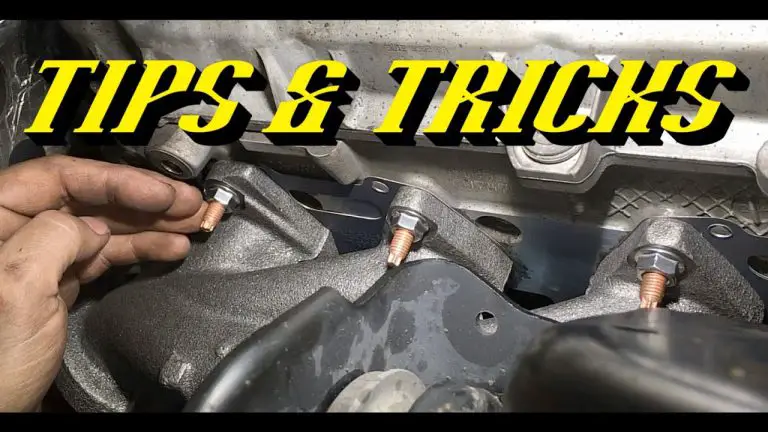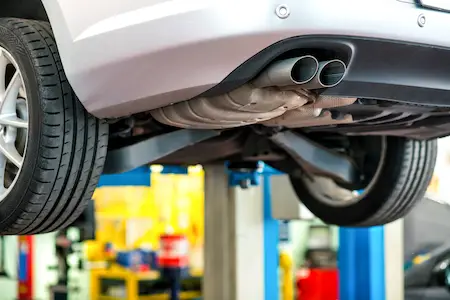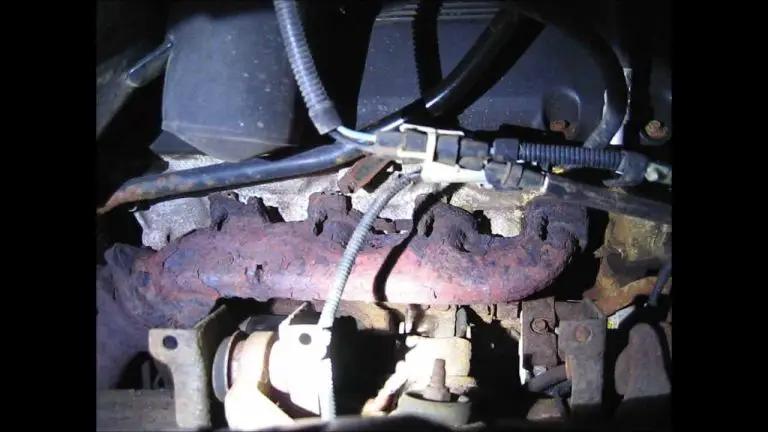Common Exhaust Problems And How to Diagnose Them
Common exhaust problems can be diagnosed through signs such as loud noises or unusual smells. In this article, we will explore these issues and their causes, providing insights on how to effectively diagnose and address them for optimal vehicle performance.
Whether it’s a faulty muffler, a damaged exhaust pipe, or a failing catalytic converter, understanding the symptoms and taking appropriate action can help prolong the lifespan of your exhaust system and prevent costly repairs down the road. Stay tuned for practical tips on troubleshooting exhaust problems and ensuring your vehicle runs smoothly.

Credit: www.vipermotorsports.com
Clogged Catalytic Converter
A clogged catalytic converter can lead to various problems in your vehicle’s exhaust system. One of the most common symptoms is a decrease in engine performance. Another indication is an increase in engine temperature. These issues arise due to the restricted flow of exhaust gases.
There are several causes for a clogged catalytic converter, such as excessive carbon buildup or the presence of foreign materials. To diagnose this problem, you can perform a simple test by tapping on the converter and listening for any rattling sounds.
Additionally, you can check the oxygen sensor readings using a diagnostic tool. If the readings are abnormal, it may indicate a clogged catalytic converter. Therefore, it is crucial to address this issue promptly to ensure the proper functioning of your vehicle’s exhaust system.
Leaking Exhaust Manifold
Leaking exhaust manifolds can cause a range of issues for your vehicle. Signs of a leaking exhaust manifold include loud noises, decreased power, and increased exhaust emissions. Reasons behind a leaking exhaust manifold can vary, but common culprits include worn gaskets, cracked manifolds, or loose bolts.
To diagnose a leaking exhaust manifold, start by inspecting the manifold for any visible cracks or damage. Use a flashlight to check for leaks around the gaskets and listen for any unusual noises. You can also perform a smoke test to identify the exact location of the leak.
Make sure to address a leaking exhaust manifold promptly to prevent further damage to your engine and ensure your vehicle runs smoothly. Avoid delays and costly repairs by being proactive and addressing any exhaust problems as soon as they arise.
Frequently Asked Questions On Common Exhaust Problems And How To Diagnose Them
What Are The Common Symptoms Of A Failing Exhaust System?
Common symptoms of a failing exhaust system include loud noises, decreased fuel efficiency, and a strong smell of exhaust fumes inside the vehicle.
How Do I Know If My Catalytic Converter Needs To Be Replaced?
You may need to replace your catalytic converter if you experience reduced engine performance, a decrease in fuel efficiency, or a sulfur smell coming from your exhaust.
Why Is My Exhaust Smoking?
Exhaust smoke can indicate different problems. Blue smoke indicates burning oil. White smoke may mean coolant is leaking, and black smoke suggests a rich fuel mixture or a clogged air filter.
What Causes My Car To Have A Loud Exhaust?
A loud exhaust can be caused by issues such as a damaged muffler, exhaust leak, or a hole in the exhaust pipe. These problems can affect the efficiency and performance of your vehicle.
How Can I Prevent Exhaust System Problems?
Regular maintenance is key to preventing exhaust system problems. This includes checking for leaks, replacing worn-out parts, and getting your vehicle inspected by a professional regularly.
How Do I Fix An Exhaust Leak?
To fix an exhaust leak, you can use a repair kit specifically designed for exhaust systems or take your vehicle to a mechanic who can accurately diagnose and fix the issue.
Conclusion
To sum up, diagnosing common exhaust problems is crucial for maintaining the optimal performance of your vehicle. By paying attention to the symptoms such as loud noises, reduced fuel efficiency, and unusual odors, you can identify potential issues early on.
Conducting a visual inspection, checking for leaks, and listening for any abnormal sounds can help pinpoint the cause of the problem. It is also essential to monitor your vehicle’s exhaust system regularly and seek professional assistance when needed. Additionally, performing routine maintenance, such as cleaning the catalytic converter and replacing worn-out components, can prevent major exhaust problems from occurring.
Remember, a well-maintained exhaust system ensures efficient engine operation, reduces harmful emissions, and improves overall vehicle performance. So, take the necessary steps to diagnose exhaust problems promptly and keep your vehicle running smoothly for years to come.




